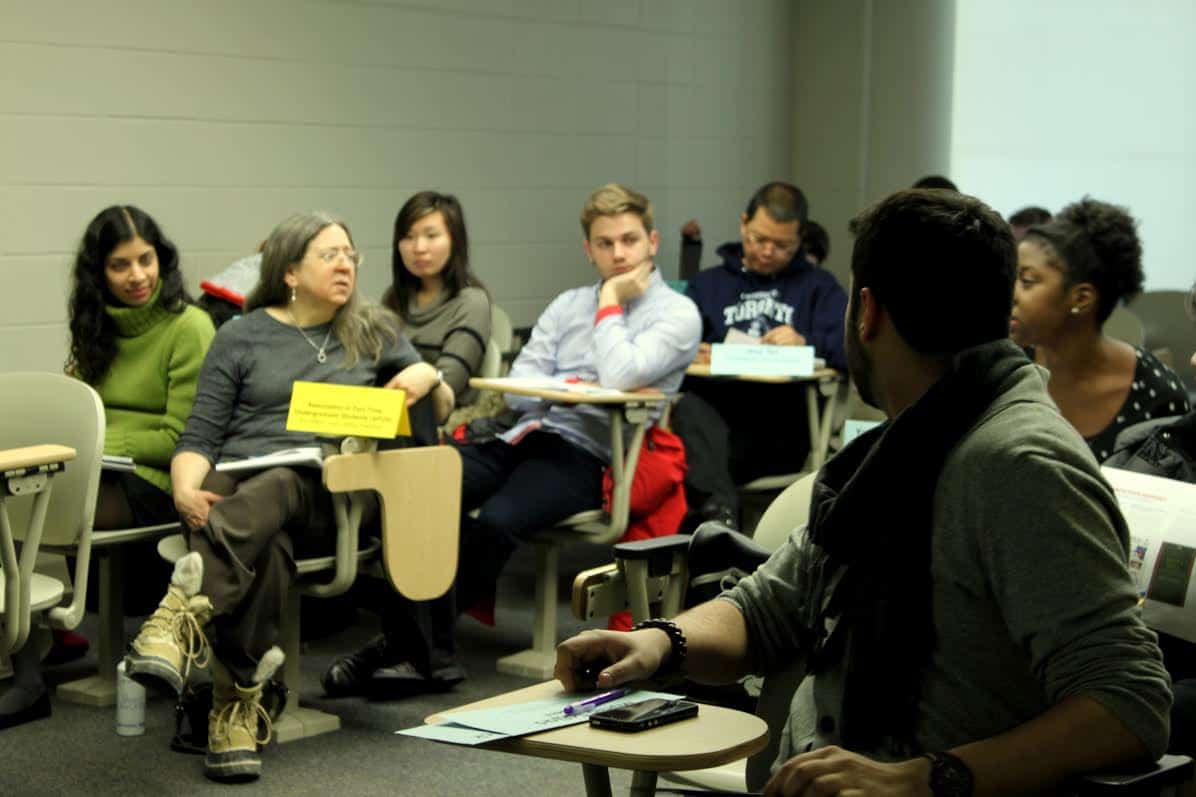In the wake of Monday’s decision by the University of Toronto Mississauga Students’ Union (UTMSU) to leave the Student Societies Summit, other student leaders are also questioning their own participation, with the possibility of further withdrawals. Wednesday’s UTSU board meeting saw several of the student union’s directors, including president Munib Sajjad, criticize the summit’s proceedings, raising the possibility of more exits.
The meeting was dominated by discussion of UTMSU’s move, announced Monday. In a letter explaining the departure, UTMSU’s vice-president external, Melissa Theodore, said the summit’s “undemocratic” proceedings treated the Mississauga campus’s students as “second class.”
Theodore, present at Wednesday’s board meeting, cited the independence of student unions as a major reason behind the move. “We’re autonomous bodies,” said Theodore, “we shouldn’t be meddled with by the administration.”
Theodore’s comments were met with approval by Sajjad, who stressed that the summit is “letting the administration infringe on our autonomy.” However, he stressed that the UTSU wants to hear from its members before acting. “This is a lot to take in,” Sajjad said, “if this is the right step for us as an organization, we need consultation to follow the will of our membership.” What form that consultation will take remains unclear—a referendum was immediately ruled out, and Sajjad declined to offer specific measures being considered.
Others were equally critical of the summit. Nzube Ekpunobi, recently appointed arts and science director, called the summit “destructive in nature,” while Danielle Sandhu, former UTSU president and current executive director of the Association of Part-time Undergraduate Students (APUS), claimed that student groups had rejected the university’s offer of a similar summit in 2008, for fear of losing autonomy.
Not all UTSU board members had concerns. Pierre Harfouche, a director representing the Faculty of Engineering, expressed his view that UTM students could continue being represented, even without UTMSU’s participation. “UTSU needs to make clear that it still represents UTM students” stressed Harfouche, “as it would if other groups pulled out.”
After the meeting, some suggested that recent criticism of the summit may be motivated by factors other than those cited in the letter, chiefly UTMSU’s displeasure at its potential outcome. “If the UTMSU had procedural concerns with the Summit back in September, why have they so willingly contributed for the past five months?” said Ben Crase, UTSU director and co-head of Trinity College, and a participant in the summit. “No longer able to defend their position at the Summit, they are clearly attempting to discredit our position by making slanderous accusations of misconduct.”
The Student Societies Summit, a meeting of nearly two dozen student groups, chaired by the administration, has met eight times this year, with two other meetings scheduled before the end of the year.


